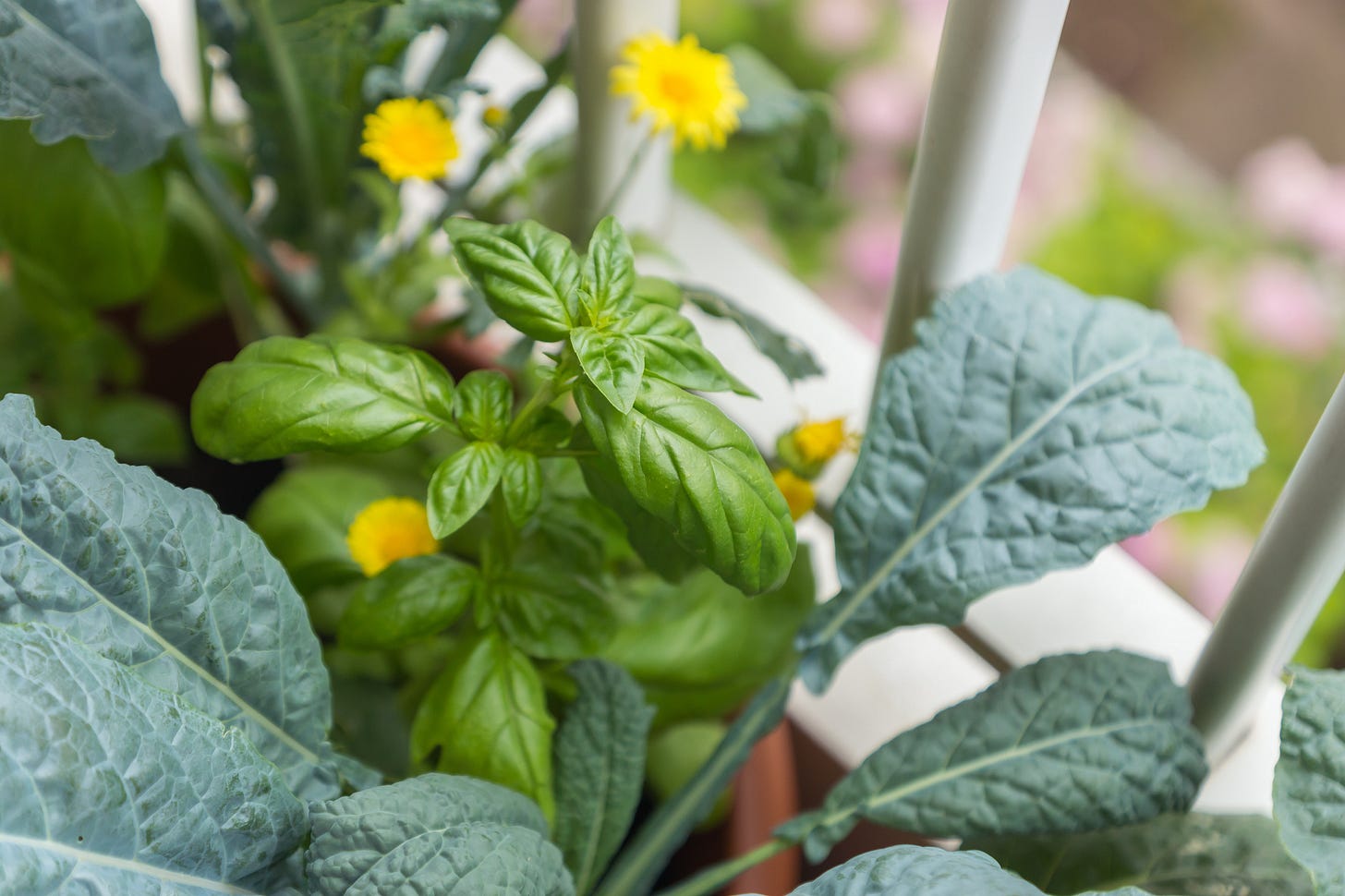Companionship: Thriving Plants & Thriving People
The similarities between what people and plants need to be healthy, and how we can enhance or hinder those conditions.
Having received this year's seed orders, I'm now planning what to grow where in my small backyard ecosystem. I ordered early this year, anticipating a second year of high demand due to pandemic gardening. More of us are growing food gardens than in the recent past, motivated by the need for outdoor activities that are close to home and a new awareness of the fragility of our food supply. As I sort through this year's seeds, noting details that will help my garden thrive, such as their planting dates and germination times, I think about the similarities between what people and plants need to be healthy, and how we can enhance or hinder those conditions.
One of the important factors in my garden preparation is companion planting – deciding which plants enhance each other's growth and those which don't do well in close proximity to each other. As an organic gardener, I also like to grow plants that attract beneficial insects and repel those that will harm the fruits and vegetables. This is the opposite of the approach taken by conventional gardeners and farmers working in a monoculture, who fight all-out war on pests by killing them with chemical insecticides.
In the same way, people need companions in order to thrive. There is a great deal of evidence about the danger to our mental health from the isolating and physical distancing so many of us have been doing for the past year. Lack of social contact and loneliness have been shown to increase depression, anxiety, memory loss, and even dementia. We're told that alcohol abuse, suicide, and domestic abuse have all increased over the past year. Aside from the connection between body, mind, and spirit, our physical health can be endangered in a more direct way by lack of human companionship. Contact with the microbial world can enhance our immune systems; eradicating that contact with helpful microbes from other people can be harmful. So, as important as it is to reduce the spread of Covid-19, the war we are waging – by avoiding close interaction with others and their healthy bacteria, incessantly washing our hands with harsh soaps, overusing chemical disinfectants, and maybe even those controversial vaccines – may, ironically, be reducing our immune systems' ability to keep us healthy in the long-term.
Will I catch Covid? I hope not. And, since I already have a compromised immune system, I'm still trying to avoid close contact with most people while paying particular attention to my mental health.
Will my garden be perfect? No it won't; I will share the results with a few birds and bugs. But there will be enough fruits and veggies for us all.
I don't have quick, easy solutions for either the pandemic or for the way conventional farms and gardens damage the environment (although, for 45 years, I've been writing about changes individuals can make). But I do know that gardening helps me deal with the anxiety resulting from this disruptive public health challenge. I also know that my organic garden with its companion plants is a symbol of how we can all help heal the earth from the devastation we have wreaked due to our disrespect for it. And now, I just need to patiently await warmer weather so I can get those seeds in the ground.



